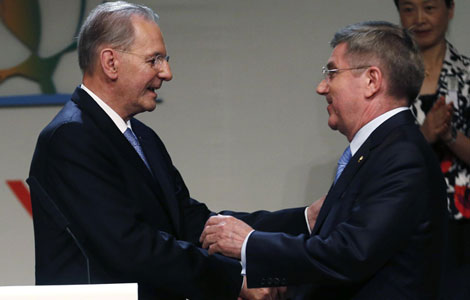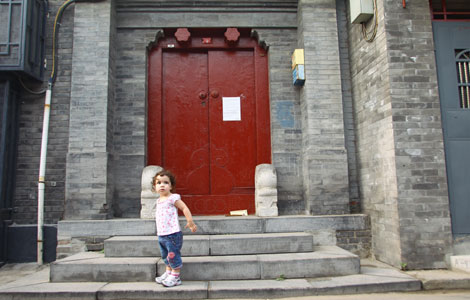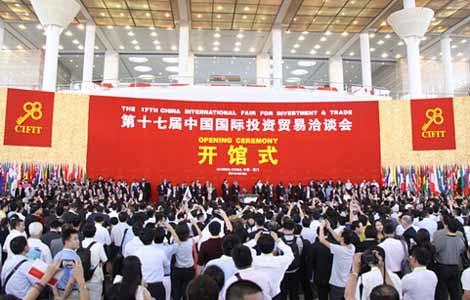Silk Road to take on a new look
Updated: 2013-09-11 23:19
By Li Xiaokun in Beijing, Zhang Yuwei in New York and Chen weihua in washington (China Daily)
|
||||||||
Experts call to set up free trade zone to cover China and Eurasian countries
Chinese President Xi Jinping's proposal to build a "Silk Road Economic Belt" is a huge economic opportunity for the region, observers said.
To realize the goal, which Xi made in his first formal policy speech on Central Asia, they suggested a free trade zone that includes China and Eurasian countries.
 |
|
Feng Xiuxia / China Daily |
In a speech at Kazakhstan's Nazarbayev University on Saturday, Xi proposed establishing a Silk Road Economic Belt, similar to the original, ancient Silk Road of more than 2,000 years ago, to boost cooperation between China and Eurasian countries.
The regional cooperation structure, Xi said, can be set up through "strengthening policy communications, road connections, trade facilitation, currency circulation and people-to-people exchanges".
"My home, Shaanxi province, is the start of the ancient Silk Road," Xi said.
He said he was moved as he reviewed the Silk Road's history during his visit to Kazakhstan, a modern nation on the ancient commercial road.
The Silk Road boasts a population of 3 billion and a market that is unparalleled both in scale and potential, Xi said.
Johannes Linn, nonresident senior fellow of Global Economy and Development at the Brookings Institution, believes Xi's statement at Narzarbayev University is very significant as it shows that the Chinese leadership at the highest level is now focused on systematically fostering cooperation with its Western neighbors in Central Asia and beyond.
"If, as President Xi indicated, China is throwing its huge and growing economic weight and financial resources behind linking Central Asia with the rest of Eurasia, this will greatly enhance the economic prospects of the region and significantly improve the outlook for economic integration of greater Eurasia. Such integration will benefit all the countries in Eurasia and act as a stimulus to world economic growth," he said.
Linn, a former World Bank vice-president for Europe and Central Asia, dded a key to the success of China's New Silk Road initiative will be whether it goes beyond words to action. This requires cooperation not only between China and Central Asia, but also between China, Russia, the European Union and even India.
Jon Taylor, a professor of political science at the University of St. Thomas in Houston, said that given China's strategy of developing its western regions, it is logical to extend the policy into Central Asia by strengthening relations with China's western neighbors for economic and security reasons.
"Proposing a new Silk Road is a strategic necessity for China. As a great power, China has to protect its vital economic interests and political influence in the region. The new Silk Road proposal does that.
"As President Xi has said, it's a ‘win-win' proposal. Why not encourage a free trade zone that encompasses 3 billion people, has tremendous mineral and energy resources, and access to both Europe and the Middle East? "
Nazari Pariani, editor-in-chief of Mandegar Daily, a leading Afghan newspaper, told Xinhua News Agency that China's new policy to build the economic belt would benefit the whole region.
"Since Afghanistan is in Central Asia and is a neighbor of China, it can enormously benefit from China's new Central Asia policy," Pariani said.
"Since the Silk Road passes through Afghanistan, the revival of its historic position can help Afghanistan act as a bridge between Central, East and South Asia."
He added his country can play a significant role in enhancing trade and economic cooperation in the region.
"Our region, as President Xi mentioned in his speech, is home to 3 billion people, more than the population of Europe. No doubt the countries in the region can create a huge market for their products, unparalleled both in scale and potential, which creates a conducive investment environment and job opportunities for their people and will eventually reduce poverty in our region," he said.
Xu Qinhua, deputy head of Central Asian studies at the School of International Relations at Renmin University of China, said close cooperation between China and energy-rich Central Asia will ensure energy security for both sides, and win international support for each other's diplomatic efforts.
"For China, the more important thing is that it will help forge stable and friendly frontiers in its northwest, which will provide strategic support for China's development.
"Similarly, because of its special location, huge energy reserves as well as ethnic, cultural and religious diversity, political and economic security of Central Asia is inseparable from China."

 China's Christian churches reduce leaders' age ceiling
China's Christian churches reduce leaders' age ceiling
 Student's rare blood bonds Kazakhstan and China
Student's rare blood bonds Kazakhstan and China
 Apple's low-end phone price disappointing
Apple's low-end phone price disappointing
 US marks 9/11 anniversary
US marks 9/11 anniversary
 German Bach elected as IOC president
German Bach elected as IOC president
 Implant surgery for boy's eyes a success
Implant surgery for boy's eyes a success
 Hutong life facing change
Hutong life facing change
 New York Fashion Week in session
New York Fashion Week in session
Most Viewed
Editor's Picks

|

|

|

|

|

|
Today's Top News
Report questions US firms pursuing cloud computing in China
Reducing poverty gains momentum in Asia
China turns to US sorghum for animal feed
Russia proposal likely to avert US airstrikes
Li stresses transformation of economy
FM dismisses Philippine accusations
China's global firms face 'trust gap'
Shanghai gets tips on innovation
US Weekly

|

|






